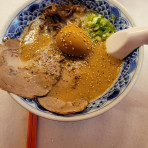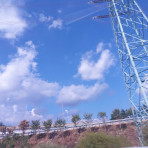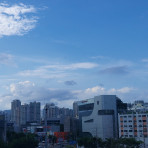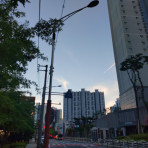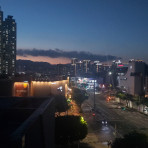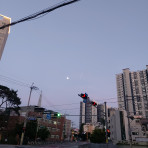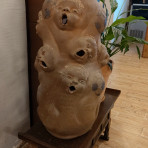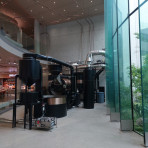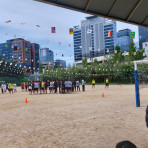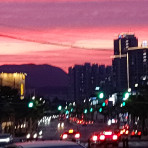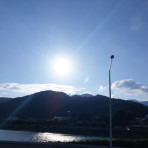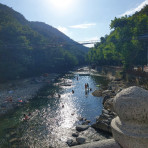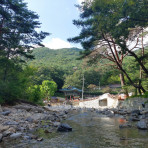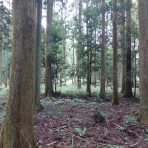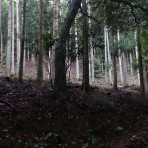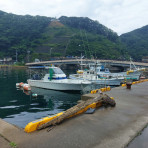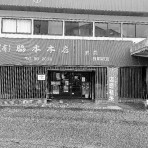North Korea cracks down on homes converted into Airbnb-style lodgings
본문
Mon, 12 Feb 2024 14:27:39 -0500

As North Korea prepares for two important holidays, authorities declared an “emergency security period” and began cracking down on people who turn their homes into lodging for holiday travelers, a move that residents told RFA was also aimed at curbing prostitution.
Seollal, the Korean version of the Lunar New Year celebrated all over East Asia fell on Saturday. This year, that’s less than a week before the Day of the Shining Star on Feb. 16, a day on which North Koreans remember Kim Jong Un’s father, the late “Dear Leader” Kim Jong Il, who ruled the country from 1994 until his death in 2011.
As the two days are in such close proximity, the period between will serve as kind of an extended holiday this year, and travelers will need a place to stay. People with room to spare in their homes can open them up for a little extra cash.
But the government in the northern province of Ryanggang launched a surprise police inspection to root out the informal lodgings this week, a resident living there told RFA Korean.
The resident said this was the second holiday lodging inspection this year, following one that happened ahead of Kim Jong Un’s birthday on Jan. 8.
“The purpose of accommodation inspections is stated to be related to the ‘war on spies,’ but the actual purpose is to detect and eradicate private inns and prostitution,” he said, explaining that these private inns were very popular around train stations and marketplaces prior to the pandemic, and “anti-socialist” activities like prostitution went hand-in-hand, with them.
“Even before the pandemic … strong controls were implemented against private inns,” he said. “But private inns have not been eradicated because the elderly residents have no other way to make a living.”
Even staying in the house of a friend during the holidays can get a traveler in trouble, another Ryanggang resident told RFA on condition of anonymity to speak freely.
Official accommodations
Travelers are supposed to stay in officially registered inns and other lodging places that send a portion of their money to authorities. But homeowners offering private lodging can avoid paying that money to the government.
“Quite a few people were caught in this inspection because they did not register for official accommodations,” she said. “They were mostly relatives or acquaintances living in Ryanggang Province. Close relatives were released once their residence was confirmed, but acquaintances were released with a fine of 3,000 won (35 U.S. cents).”
The farther away from Ryanggang the person was from, the stiffer the fine, she said.
“If guests from outside of Ryanggang Province were brought in, unless they were relatives, it was considered running a private inn and 300,000 won ($35) fine was imposed on the landlord,” she said. “Even if they had a travel document, a fine of 300,000 won was imposed on out-of-town guests who stayed without registering their stay.”
Those caught running a private inn more than once not only have to pay the hefty fine, they must also spend three months in a disciplinary labor center, the second resident said.
“The same fine and punishment are also applied to women who engage in prostitution with foreign guests at a private inn,” she said.
The risk is high and the money one can earn from Ryanggang’s version of Airbnb is very low in comparison.
“In Ryanggang Province, if you only sleep at a private inn, the cost of lodging is 4,000 won (47 cents),” she said. “If you include a bottle of alcohol and a meal, the cost is 15,000 won ($1.78).”
Translated by Claire S. Lee. Edited by Eugene Whong and Malcolm Foster.
As North Korea prepares for two important holidays, authorities declared an “emergency security period” and began cracking down on people who turn their homes into lodging for holiday travelers, a move that residents told RFA was also aimed at curbing prostitution.
Seollal, the Korean version of the Lunar New Year celebrated all over East Asia fell on Saturday. This year, that’s less than a week before the Day of the Shining Star on Feb. 16, a day on which North Koreans remember Kim Jong Un’s father, the late “Dear Leader” Kim Jong Il, who ruled the country from 1994 until his death in 2011.
As the two days are in such close proximity, the period between will serve as kind of an extended holiday this year, and travelers will need a place to stay. People with room to spare in their homes can open them up for a little extra cash.
But the government in the northern province of Ryanggang launched a surprise police inspection to root out the informal lodgings this week, a resident living there told RFA Korean.
The resident said this was the second holiday lodging inspection this year, following one that happened ahead of Kim Jong Un’s birthday on Jan. 8.
“The purpose of accommodation inspections is stated to be related to the ‘war on spies,’ but the actual purpose is to detect and eradicate private inns and prostitution,” he said, explaining that these private inns were very popular around train stations and marketplaces prior to the pandemic, and “anti-socialist” activities like prostitution went hand-in-hand, with them.
“Even before the pandemic … strong controls were implemented against private inns,” he said. “But private inns have not been eradicated because the elderly residents have no other way to make a living.”
Even staying in the house of a friend during the holidays can get a traveler in trouble, another Ryanggang resident told RFA on condition of anonymity to speak freely.
Official accommodations
Travelers are supposed to stay in officially registered inns and other lodging places that send a portion of their money to authorities. But homeowners offering private lodging can avoid paying that money to the government.
“Quite a few people were caught in this inspection because they did not register for official accommodations,” she said. “They were mostly relatives or acquaintances living in Ryanggang Province. Close relatives were released once their residence was confirmed, but acquaintances were released with a fine of 3,000 won (35 U.S. cents).”
The farther away from Ryanggang the person was from, the stiffer the fine, she said.
“If guests from outside of Ryanggang Province were brought in, unless they were relatives, it was considered running a private inn and 300,000 won ($35) fine was imposed on the landlord,” she said. “Even if they had a travel document, a fine of 300,000 won was imposed on out-of-town guests who stayed without registering their stay.”
Those caught running a private inn more than once not only have to pay the hefty fine, they must also spend three months in a disciplinary labor center, the second resident said.
“The same fine and punishment are also applied to women who engage in prostitution with foreign guests at a private inn,” she said.
The risk is high and the money one can earn from Ryanggang’s version of Airbnb is very low in comparison.
“In Ryanggang Province, if you only sleep at a private inn, the cost of lodging is 4,000 won (47 cents),” she said. “If you include a bottle of alcohol and a meal, the cost is 15,000 won ($1.78).”
Translated by Claire S. Lee. Edited by Eugene Whong and Malcolm Foster.
자유아시아방송 제공 및 저작권 소유 | RFA provided and copyrighted -www.rfa.org

As North Korea prepares for two important holidays, authorities declared an “emergency security period” and began cracking down on people who turn their homes into lodging for holiday travelers, a move that residents told RFA was also aimed at curbing prostitution.
Seollal, the Korean version of the Lunar New Year celebrated all over East Asia fell on Saturday. This year, that’s less than a week before the Day of the Shining Star on Feb. 16, a day on which North Koreans remember Kim Jong Un’s father, the late “Dear Leader” Kim Jong Il, who ruled the country from 1994 until his death in 2011.
As the two days are in such close proximity, the period between will serve as kind of an extended holiday this year, and travelers will need a place to stay. People with room to spare in their homes can open them up for a little extra cash.
But the government in the northern province of Ryanggang launched a surprise police inspection to root out the informal lodgings this week, a resident living there told RFA Korean.
The resident said this was the second holiday lodging inspection this year, following one that happened ahead of Kim Jong Un’s birthday on Jan. 8.
“The purpose of accommodation inspections is stated to be related to the ‘war on spies,’ but the actual purpose is to detect and eradicate private inns and prostitution,” he said, explaining that these private inns were very popular around train stations and marketplaces prior to the pandemic, and “anti-socialist” activities like prostitution went hand-in-hand, with them.
“Even before the pandemic … strong controls were implemented against private inns,” he said. “But private inns have not been eradicated because the elderly residents have no other way to make a living.”
Even staying in the house of a friend during the holidays can get a traveler in trouble, another Ryanggang resident told RFA on condition of anonymity to speak freely.
Official accommodations
Travelers are supposed to stay in officially registered inns and other lodging places that send a portion of their money to authorities. But homeowners offering private lodging can avoid paying that money to the government.
“Quite a few people were caught in this inspection because they did not register for official accommodations,” she said. “They were mostly relatives or acquaintances living in Ryanggang Province. Close relatives were released once their residence was confirmed, but acquaintances were released with a fine of 3,000 won (35 U.S. cents).”
The farther away from Ryanggang the person was from, the stiffer the fine, she said.
“If guests from outside of Ryanggang Province were brought in, unless they were relatives, it was considered running a private inn and 300,000 won ($35) fine was imposed on the landlord,” she said. “Even if they had a travel document, a fine of 300,000 won was imposed on out-of-town guests who stayed without registering their stay.”
Those caught running a private inn more than once not only have to pay the hefty fine, they must also spend three months in a disciplinary labor center, the second resident said.
“The same fine and punishment are also applied to women who engage in prostitution with foreign guests at a private inn,” she said.
The risk is high and the money one can earn from Ryanggang’s version of Airbnb is very low in comparison.
“In Ryanggang Province, if you only sleep at a private inn, the cost of lodging is 4,000 won (47 cents),” she said. “If you include a bottle of alcohol and a meal, the cost is 15,000 won ($1.78).”
Translated by Claire S. Lee. Edited by Eugene Whong and Malcolm Foster.
As North Korea prepares for two important holidays, authorities declared an “emergency security period” and began cracking down on people who turn their homes into lodging for holiday travelers, a move that residents told RFA was also aimed at curbing prostitution.
Seollal, the Korean version of the Lunar New Year celebrated all over East Asia fell on Saturday. This year, that’s less than a week before the Day of the Shining Star on Feb. 16, a day on which North Koreans remember Kim Jong Un’s father, the late “Dear Leader” Kim Jong Il, who ruled the country from 1994 until his death in 2011.
As the two days are in such close proximity, the period between will serve as kind of an extended holiday this year, and travelers will need a place to stay. People with room to spare in their homes can open them up for a little extra cash.
But the government in the northern province of Ryanggang launched a surprise police inspection to root out the informal lodgings this week, a resident living there told RFA Korean.
The resident said this was the second holiday lodging inspection this year, following one that happened ahead of Kim Jong Un’s birthday on Jan. 8.
“The purpose of accommodation inspections is stated to be related to the ‘war on spies,’ but the actual purpose is to detect and eradicate private inns and prostitution,” he said, explaining that these private inns were very popular around train stations and marketplaces prior to the pandemic, and “anti-socialist” activities like prostitution went hand-in-hand, with them.
“Even before the pandemic … strong controls were implemented against private inns,” he said. “But private inns have not been eradicated because the elderly residents have no other way to make a living.”
Even staying in the house of a friend during the holidays can get a traveler in trouble, another Ryanggang resident told RFA on condition of anonymity to speak freely.
Official accommodations
Travelers are supposed to stay in officially registered inns and other lodging places that send a portion of their money to authorities. But homeowners offering private lodging can avoid paying that money to the government.
“Quite a few people were caught in this inspection because they did not register for official accommodations,” she said. “They were mostly relatives or acquaintances living in Ryanggang Province. Close relatives were released once their residence was confirmed, but acquaintances were released with a fine of 3,000 won (35 U.S. cents).”
The farther away from Ryanggang the person was from, the stiffer the fine, she said.
“If guests from outside of Ryanggang Province were brought in, unless they were relatives, it was considered running a private inn and 300,000 won ($35) fine was imposed on the landlord,” she said. “Even if they had a travel document, a fine of 300,000 won was imposed on out-of-town guests who stayed without registering their stay.”
Those caught running a private inn more than once not only have to pay the hefty fine, they must also spend three months in a disciplinary labor center, the second resident said.
“The same fine and punishment are also applied to women who engage in prostitution with foreign guests at a private inn,” she said.
The risk is high and the money one can earn from Ryanggang’s version of Airbnb is very low in comparison.
“In Ryanggang Province, if you only sleep at a private inn, the cost of lodging is 4,000 won (47 cents),” she said. “If you include a bottle of alcohol and a meal, the cost is 15,000 won ($1.78).”
Translated by Claire S. Lee. Edited by Eugene Whong and Malcolm Foster.
좋아요7
이 글을 좋아요하셨습니다
관련링크
등록된 댓글이 없습니다.

